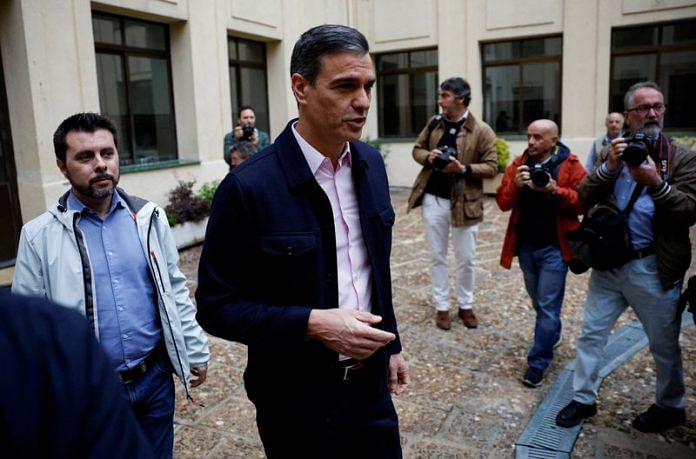By Belén Carreño
MADRID (Reuters) – Key European Union legislation including reforms of its power market and climate change goals are up in the air after Prime Minister Pedro Sanchez called a snap election just as Spain is due to take the reins of the bloc.
Sanchez surprised even many in his own government on Monday by calling a snap national election for July 23 when he was expected to hold out until the last moment in December.
Diplomats in Brussels fear the elections could be not only a distraction but could also slow the EU’s agenda if it results in a change of government – and policy – during a period when the bloc hoped to sign off landmark laws and regulations.
“The expectations with Spain were very high, there were a lot of dossiers to complete,” said a senior EU source. “It’s going to be much more difficult now.”
Spain’s will be the last full presidency before EU parliament elections in June 2024, adding more urgency to the need to complete pending legislation, an EU diplomat said.
The elections will not affect Spain’s EU presidency since much of the groundwork has already been done, Sanchez’s press office said.
Sanchez announced the snap election after his Socialist party and its left-wing coalition partners Podemos suffered greater-than-expected losses in regional elections on Sunday. The momentum is now with the conservative People’s Party (PP), which won outright control of two regional governments and could run six more in partnership if it can negotiate coalitions with far-right Vox.
A PP government, especially in coalition with Vox, could place less priority on climate change legislation, said the EU source. Some EU members led by France want the bloc to slow down its climate agenda. That group’s position would be strengthened if Spain were to join.
A new government would also need time to formulate its position on EU legislation, the source said. Spain’s permanent representation to the EU said elections do not alter the functions of the presidency and the Spanish government had already taken into account that there would be a vote in Spain during that time.
Key aspects of its energy agenda are changes proposed in March to the EU’s power market, which include speeding up deployment of renewables, shielding consumers from price surges and greater use of longer-term contracts.
Another possible outcome would be that no party can form a government and the election must be repeated, leaving Sanchez with a weak government.
The snap election means that Spain’s EU presidency will focus on technical rather than political issues, said Miguel Otero, a researcher at the Real Instituto Elcano in Madrid.
The Spanish government will be in the most intense phase of campaigning when it takes over the presidency on July 1. Much of Spain’s presidency agenda has been organised to fit around an original plan for elections in November or December.
The majority of informal meetings, when many of the policies are debated, were scheduled for July, including four during the final week of campaigning.
(Reporting by Belen Carreño; additional reporting by Pietro Lombardi; Writing by Charlie Devereux; Editing by Giles Elgood)
Disclaimer: This report is auto generated from the Reuters news service. ThePrint holds no responsibilty for its content.



